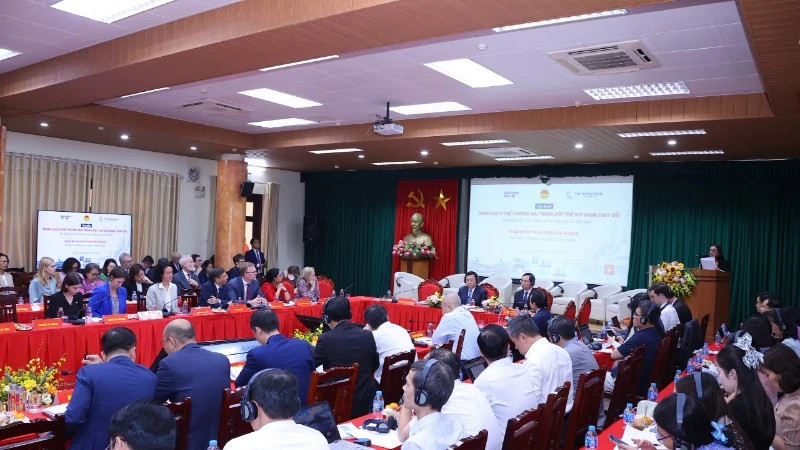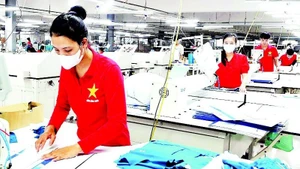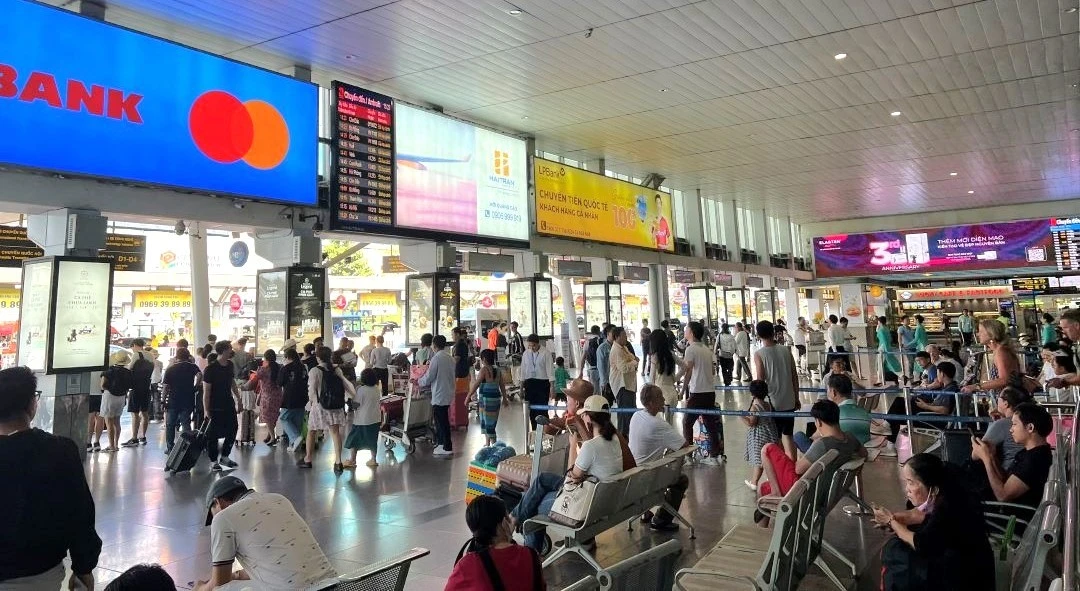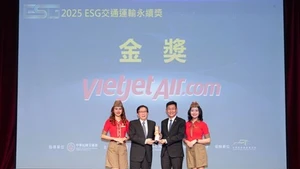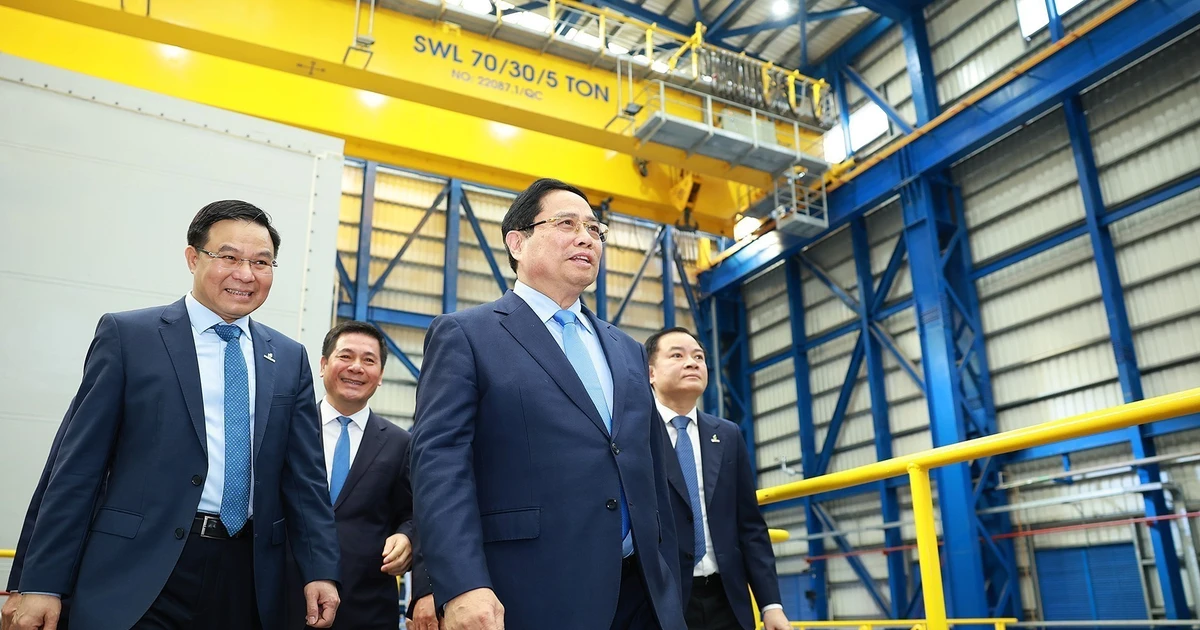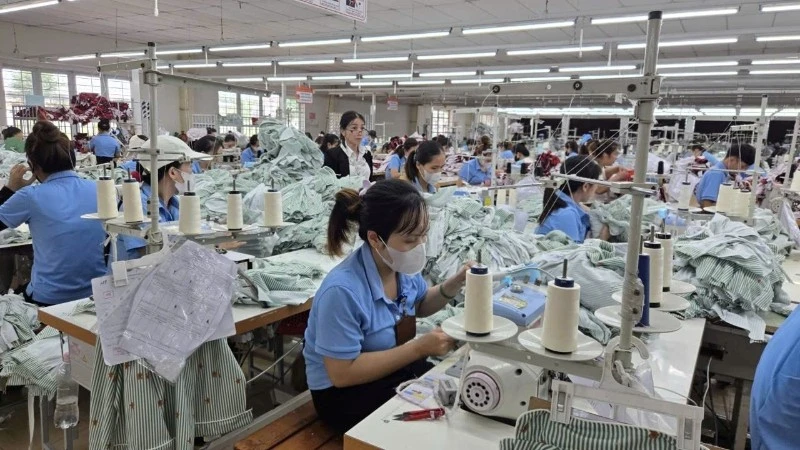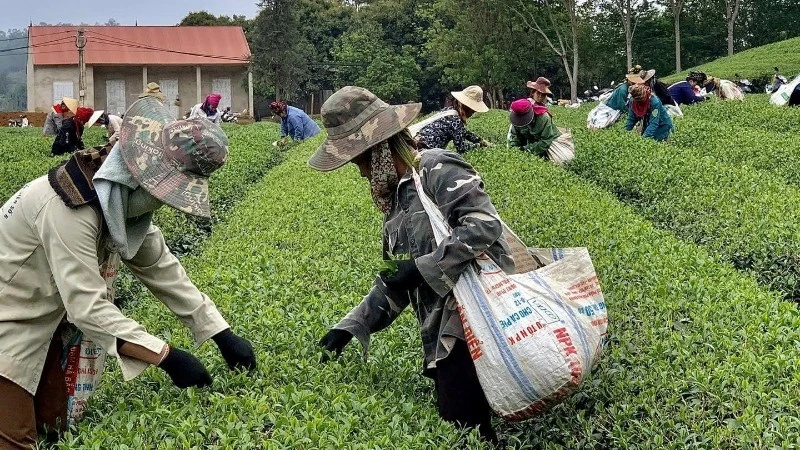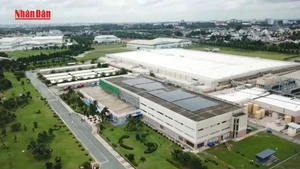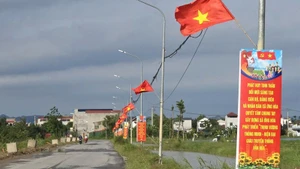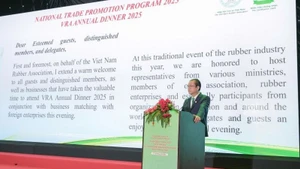Politburo member, President of the Ho Chi Minh National Academy of Politics and Chairman of the Central Theory Council Nguyen Xuan Thang and World Bank Regional Vice President for East Asia and Pacific (EAP) Manuela V. Ferro co-chaired the conference.
The event featured the participation of 150 delegates from various ministries, central agencies, international organisations and research institutes.
Speaking at the event, Politburo member Nguyen Xuan Thang said that The Viet Nam 2045: Trading Up in a Changing World report, prepared by World Bank experts and presented at the conference, closely aligns with Vietnam's realities over the past decades. He emphasised that the report provides critical insights to help Vietnam address current bottlenecks in its global trade relations.
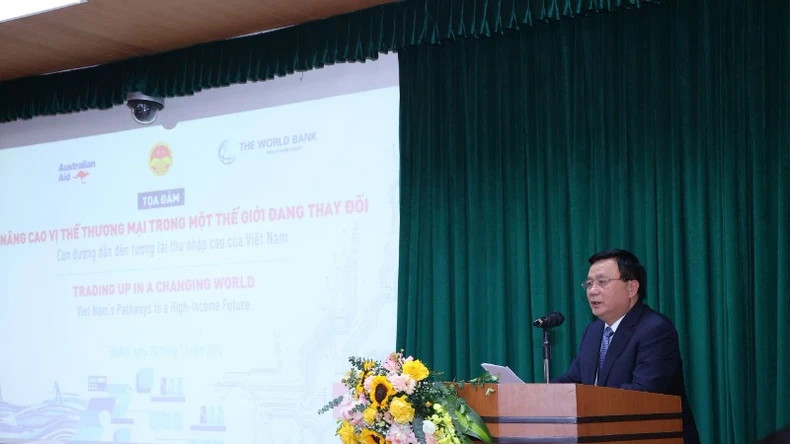 |
| Politburo member Nguyen Xuan Thang speaks at the conference. |
He expressed his desire for the World Bank and international organisations to actively share and provide support, as well as to contribute valuable insights from the conference. He emphasised the importance of continued research to shape strategic thinking, vision, and key focus solutions, enabling Vietnam to realise its aspiration of becoming a strong, prosperous, and civilised nation with a deserving position in the international community.
World Bank Regional Vice President for East Asia and Pacific (EAP) Manuela V. Ferro noted that global trade integration has brought significant benefits to Vietnam, with GDP per capita increasing from 682 USD (in 2023 USD) to 4,347 USD in 2023, achieving an average annual growth rate of 5.1%.
She added, however, that to achieve the goal of becoming a high-income nation by 2045, Vietnam will need a higher growth rate.
This requires a comprehensive policy reform approach to transform the growth model and seize opportunities from the rapidly changing global landscape.
 |
| Manuela V. Ferro speaks at the event. |
At the seminar, delegates and scientists discussed and clarified the changes and impacts on Vietnam's development process in domestic and international dynamics. They also highlighted the challenges, opportunities, and lessons learned from several countries in their transition from middle-income to upper-middle-income economies.
